News
Challenge for Sri Lanka demonstrates it is after economic benefits and not geopolitical mischief

– former Foreign Secy. Ambassador Palihakkara
Former Foreign Secretary, Ambassador H. M. G. S. Palihakkara, has said the overarching challenge that is faced by Sri Lanka in its foreign relations, is demonstrating that it is after tangible economic benefits and not “geopolitical mischief” in the Indian Ocean. He emphasized the need to harmonise domestic and foreign policies to effectively overcome the acute issues arising from the economic crisis, to deal with the Indian Ocean geopolitical “trilemma” between India, China, and the United States, and to address accountability and reconciliation at a system-wide level. Ambassador Palihakkara further suggested that Sri Lanka must re-establish its core principles for foreign policy to better navigate this ever-changing geopolitical climate, which includes a focus on avoiding involvement in great power rivalries, reciprocal engagement with all countries, and promoting a policy of international cooperation geared towards the Sustainable Development Goals (SDG).
Ambassador Palihakkara made these observations while participating in the inaugural ‘LKI Foreign Policy Forum’, titled “Changing Global Dynamics: Implications for Sri Lanka”, held on Wednesday, 9th August 2023, at the Lakshman Kadirgamar Institute of International Relations and Strategic Studies (LKI) Lighthouse Auditorium. The event, held to coincide with the 18th death anniversary of the Late Hon. Lakshman Kadirgamar, was inaugurated by Foreign Minister M.U.M. Ali Sabry, and attended by State Minister of Foreign Affairs Tharaka Balasuriya, as well as a representative gathering, comprising heads of diplomatic missions and international organisations, government officials, academics, business leaders, civil society, media practitioners, as well as students.
Earlier, LKI Executive Director Ambassador Ravinatha Aryasinha, who moderated the session, identified seven key trends in the changing global dynamics: volatile global power politics; emerging pressures on the global economy; power rivalries in the Indian Ocean; the increased significance of India; the crisis in multilateralism; the inconsistency of state voting in the United Nations system; and the changing role of non-state actors in a rapidly expanding public sphere.
Dr Harinda Vidanage, Director/International Relations and Director/Centre for Strategic Assessment, Kotelawala Defence University (KDU), discussed the current nature of global affairs with reference to great power and multilateral alliances, the pursuit of small state strategic autonomy in the Indian Ocean, and the preparedness of the defence industrial base to address present-day threats in the Indo-Pacific region. Referring to the future of small state strategic autonomy, he mentioned a probable ‘shaking of the established powers’ by emerging middle-range powers, such as India and France, and said Sri Lanka failed to benefit from foreign investments due to the binary oversimplification of complex situations. Dr. Vidanage emphasised that the way forward in the security sector requires strategic assessments of present-day and emerging threats that would effectively address the current challenges in the realm of security, including the spread of disinformation and the politicisation of these matters within Sri Lanka.
Dr Dushni Weerakoon, Executive Director, Institute of Policy Studies (IPS), recognised the growing importance of geopolitical and security strategies into economic policy, with trade and investment strategies no longer being built on purely economic principles. She described how trade policy has become a battleground and major economies are now focussing on building domestic capacity in crucial sectors, such as renewable energy and semiconductors, to reduce dependence on bilateral partners. In the question-and-answer session, she also questioned the sustainability of Sri Lanka’s non-aligned foreign policy, as it weakens their position in trade negotiations.
Dr. Jehan Perera, Executive Director, National Peace Council of Sri Lanka (NPC), emphasised the vital role of civil society organisations in guiding the “moral compass” of Sri Lanka and securing the people’s interests, particularly on the issues of human rights and good governance. Dr. Perera described the success of such moves in the past and how civil society can shape, endorse, and overturn questionable and discriminatory policies in the name of the people. He said that the need for timely elections, addressing requirements of the European Union’s GSP+, the proposed Anti-Terrorism Act, and the political will that is necessary to promote power sharing, could be issues that will influence the attitude towards Sri Lanka by the international community.
The panel discussion was followed by a thought-provoking question-and-answer session, where panellists responded to questions and comments from the audience. Topics included the contemporary relevance of the UN charter, Sri Lanka’s relationship with India, the establishment and expansion of Free Trade Agreements, the evolving role of non-state actors in foreign policy decisions, and the importance of Sri Lanka’s strategic location in the Indian Ocean. This provided a platform for new perspectives on relevant issues regarding Sri Lanka’s foreign policy and promoted further discussion.
News
Sri Lanka aims to pave a new path in digitalization by the year 2030 – President

President Anura Kumara Disanayake expressed confidence in the substantial opportunities for innovation in our country, stating that Sri Lanka aims to pave a new path in digitalization by the year 2030.
He said that the government’s aspiration is to elevate Sri Lanka, currently not a competitor in the field of innovation, to a comparable status with other countries, emphasizing that digitalization will play a crucial role in achieving this objective.
The President highlighted the necessity of implementing significant transformations within the innovation sector to meet these goals.
These remarks were made by President Disanayake at the Innovation Island Summit – 2025, held on Thursday (20) at the ITC Ratnadipa Hotel in Colombo.
The President stated that hosting the Innovation Island Summit – 2025 in Sri Lanka signifies the growing interest and aspirations of new entrepreneurship in the country regarding innovation. He further said that that various stages of human civilization have been identified, with each new chapter being shaped by innovation.
He underscored the importance of innovation in advancing human civilization to new stages, stating that while people’s needs remain constant and the means of fulfilling those needs have changed.
The President explained that innovation drives the creation of new markets by addressing emerging needs, and that new markets emerge only when the method of fulfilling needs changes. He also noted that countries that have achieved success globally have done so by recognizing and capitalizing on these changes, with neighbouring India serving as a prime example.
President Disanayake also mentioned that the current budget prioritizes innovation and emphasized the importance of utilizing new discoveries for commercialization.
The President projected export revenue of USD 19 billion for this year, emphasizing the need for a significant transformation in the innovation sector to realize this revenue target.
He stated that creating an environment for the benefits of innovation to reach the entire population is a government responsibility, reiterating that the government’s numerous goals are intertwined with innovation.
The President also highlighted the challenges Sri Lanka faces in the global economic competition, along with the necessity for digitalization and innovation. He invited international partners and investors to come to Sri Lanka and requested that new investments be directed towards the country.
He further mentioned that a positive environment for innovation and business has already been established in the country and that we possess a skilled workforce to support this initiative
News
Mobile number portability to be introduced in June

By Saman Indrajith
From June this year, mobile phone users in Sri Lanka will be able to retain their existing numbers even after switching mobile network operators, according to officials from the Ministry of Digital Economy.
The announcement was made during a meeting of the Ministerial Consultative Committee on Digital Economic Affairs held on Thursday (20).
In a statement issued on Friday, the Parliament’s Communication Division confirmed that the Ministry of Digital Economy is also constructing 50 new mobile signal towers in areas with poor network coverage to enhance connectivity.
The meeting, chaired by President Anura Kumara Dissanayake, also addressed several key digital policy issues. The discussion included cryptocurrency regulation, with the President stating that a final decision on its legality in Sri Lanka would be based on recommendations from the Governor of the Central Bank.
Other topics covered during the meeting included measures to safeguard citizens’ personal data, strategies for managing emerging technologies such as artificial intelligence, and discussions regarding the salaries of IT engineers.
Meanwhile, the Ministerial Consultative Committee on Digital Economic Affairs is set to hold a workshop on 10 March 2025 to brief all Members of Parliament on upcoming government programmes related to the digital economy.
News
Speaker refers MPs’ security requests to Acting IGP

By Saman Indrajith
Speaker Dr Jagath Wickramaratne informed Parliament on Friday that security-related requests made by Members of Parliament have been referred to the Acting Inspector General of Police (IGP) for appropriate action.
In a special statement, the Speaker noted that several MPs had approached him seeking enhanced security measures. He stated that the requests, which had been submitted periodically, have now been forwarded to the Acting IGP for necessary consideration.
Additionally, the Speaker announced that he has tabled the report from the Special Committee appointed to investigate complaints regarding the conduct of Jaffna District MP Dr Ramanathan Archchuna.
The Committee, chaired by the Deputy Chairperson of Committees, Hemali Weerasekara, also included Vijitha Herath and R.M. Ranjith Madduma Bandara.
The report will now be referred to the Committee on Ethics and Privileges for further deliberation.
-

 Sports7 days ago
Sports7 days agoRemarkable turnaround for Sri Lanka’s ODI team
-
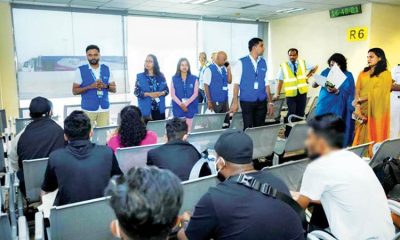
 Features7 days ago
Features7 days agoScammed and Stranded: The Dark Side of Sri Lanka’s Migration Industry
-
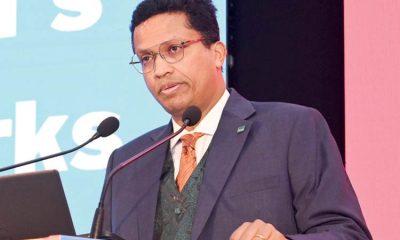
 Business7 days ago
Business7 days agoUN Global Compact Network Sri Lanka: Empowering Businesses to Lead Sustainability in 2025 & Beyond
-
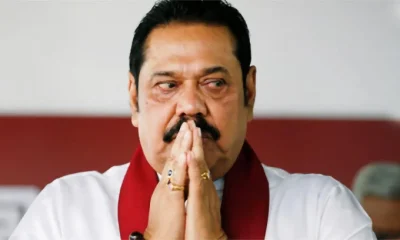
 Features6 days ago
Features6 days agoDon’t betray baiyas who voted you into power for lack of better alternative: a helpful warning to NPP – II
-

 News4 days ago
News4 days agoCommercial High Court orders AASSL to pay Rs 176 mn for unilateral termination of contract
-
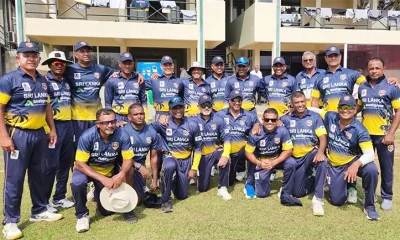
 Sports3 days ago
Sports3 days agoSri Lanka face Australia in Masters World Cup semi-final today
-
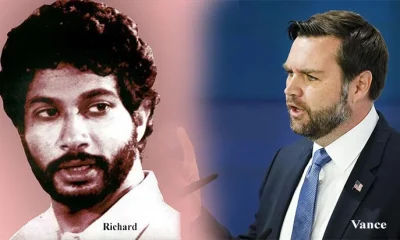
 Features6 days ago
Features6 days agoTwo films and comments
-
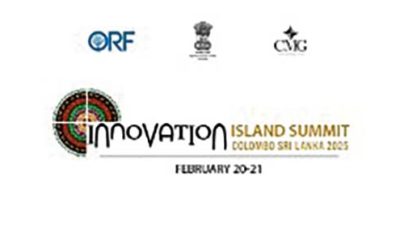
 News7 days ago
News7 days agoInnovation Island Summit 2025, Colombo, Sri Lanka











